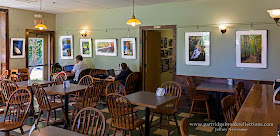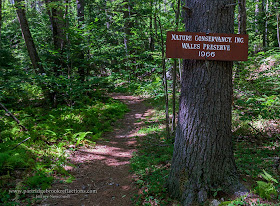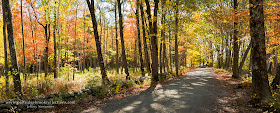I Actually Got the Calendar out in August!
 |
| Town Hall Rainbow Chesterfield, NH |
For years people have been telling me that it is important to publish
my New England Reflections Calendar during the summer. I have never disputed the concept; it was just that I never seemed to be able to get it together that early. Typically I would delay and dither until late September or even October, and, true to the warnings, I found that many potential customers would tell me that they had already bought their calendar(s) for the year. You would think that I would have learned my lesson, and this year I finally did– sort of.
This is my yearly crass promotional blog for my calendar. For ten years I have been publishing a New England Reflections Calendar. Over the decade, more than $40,000 has been raised, all going to support our Pulmonary Rehabilitation program at Cheshire Medical Center in Keene, New Hampshire. The money has been used to
 |
| Franconia, NH |
This year, for the first time, I have actually completed the calendar at a reasonable time. Earlier would have been even better, but I'm
 |
| Newfane Village Cemetery |
Ungraded Printing
For the last several years the calendar has gone from being
 |
| Hampton Beach, NH |
 |
| Maple Line Westmoreland, NH |
As always I have a wonderful group of partners in the community who help by featuring the calendar in there stores and businesses. I have just started my annual tour distributing the calendar throughout the region. I have more traveling to do and I'm always looking for new locations, but here is a partial and growing list of the where you can go to fulfill all your 2014 calendar needs.
- Cheshire Medical Center Gift Shop, Keene, NH
- Toadstool Bookstores in Keene and Peterborough, NH
- Heidi's Hallmark stores in Keene, Milford, NH
- Sharon Arts Center, Peterborough, NH
- Keene State College Bookstore, Keene, NH
- Leon's Auto Center, Keene, NH
- Nicole and Bonnie's Hair Salon, Keene, NH
- Hanna Grimes, Keene, NH
- Paper and Roses, Peterborough, NH
- Westmoreland General Store, Westmoreland, NH
- Gilsum General Store, Gilsum, NH
- JJ's Discount, Chesterfield, NH
- Monandnock Imaging, Keene, NH
- Monadnock Food Co-op
- Walpole Village Market
- Alyson's Orchard, Walpole, NH
- Drewsville General Store, Drewsville, NH
- Village Grocery, Walpole, NH
- Vermont Artisan Design, Brattleboro, Vt
- Everyone's Books, Brattleboro, Vt.
- Harlow's Sugar House, Putney, Vt
- Newfane Country Store, Newfane, Vt
- Village Bookseller, Bellows Falls, Vt
- PutneyGeneral Store, Putney, Vt
 |
| Baker Brook AutumnNewfane, NH |
 |
Finally you can be assured that, if you see me on the street, I will have a supply of calendars nearby and you will be hearing my favorite phrase for this time of season; "How many calendars do you want this year?"
Jeffrey Newcomer
Partridgebrookreflections.com











































